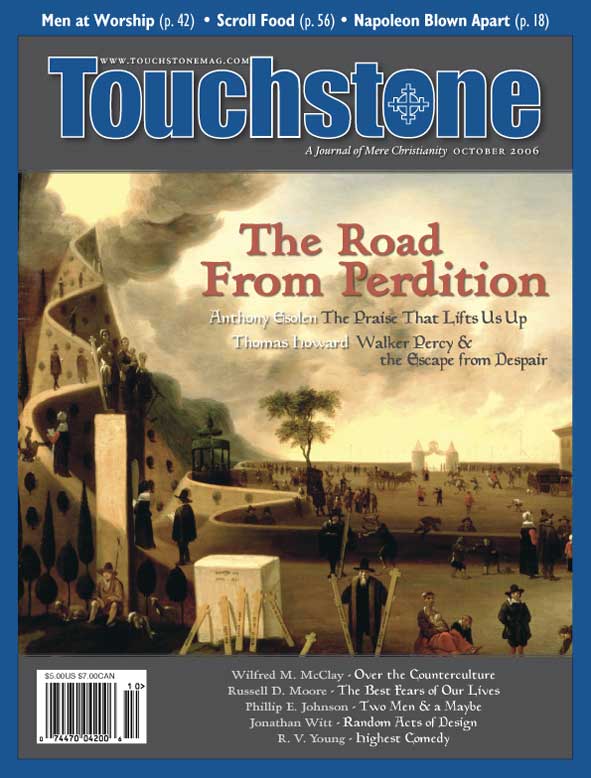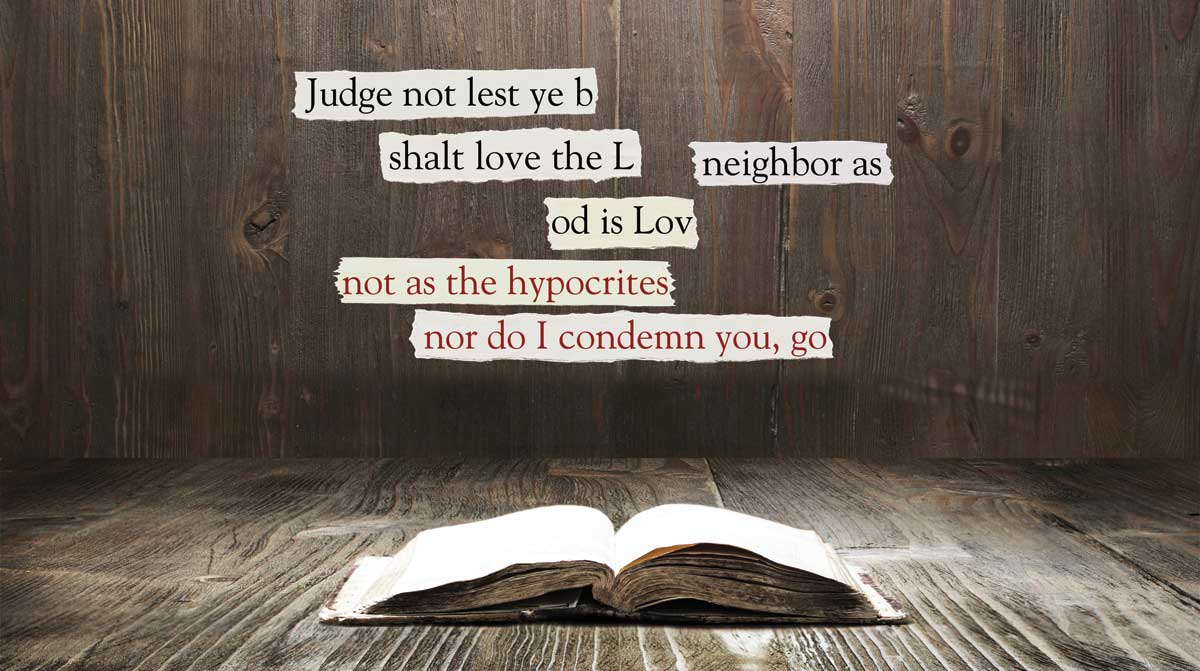Feature
Waking Up Is Hard to Do
How Walker Percy Brought Sin & Grace to the New Yorker Reader
by Thomas Howard
Walker Percy’s novels and essays tackle what C. S. Lewis called “the great platitudes” and T. S. Eliot called “the permanent things.” That is to say, they concern themselves with far more than manners, psychology, or social issues.
This locates Percy in an odd spot, if we are trying to place him in the ordinary tradition of the English-language novel. This tradition characteristically concerns itself with manners and psychology (I am thinking of Jane Austen, Anthony Trollope, George Eliot, and Henry James) or with social issues (Dickens and Hardy).
Unlike Dostoevsky, Tolstoy, Kafka, Mann, or Camus, English writers have, as often as not, seemed to avoid the immensities that arch over our mortal existence. It cannot be urged that English-language writers are superficial. Their art exhibits, in its own mode, a very high level of perfection.
Nothing but Grace
But when you get a writer who carries his tale into a realm where sin is a real category, or divine grace, you realize that you have crossed a certain threshold. Flannery O’Connor, who is frequently mentioned in the same breath with Percy, maintained that she never wrote about anything but grace. Take little Tarwater in her novella The Violent Bear It Away.
The oddities of behavior that this boy displays are, of course, partly a result of his peculiar birth and upbringing, but at the end of the day we are obliged to agree with O’Connor that he is morally and spiritually responsible for his choices, young though he may be, which must be expiated before God. There is no question of his getting comfortable with his feelings, or “giving himself permission” to follow his own preferences. Obedience to the divine will seems to be the touchstone, and it is grace that has pursued him all through the story, like the Hound of Heaven.
What Henry James, D. H. Lawrence, or Virginia Woolf would make of this, I have no idea. Your average reader of the New Yorker will titter knowingly when he comes across Old Tarwater, the archetypal redneck, sweating and preaching doom from his shanty in Powderhead.
Or again—Evelyn Waugh: as amusing, scintillating, and urbane as Brideshead Revisited is, we find that all the disorders that bedevil the Flyte family eventually reveal themselves not as dysfunctionalities but as sin. Confession and repentance seem to be the touchstone here. Lord Marchmain must repent of his adultery, and Julia of hers. Charles Ryder, the agnostic narrator, must get on his knees in front of the Blessed Sacrament before he is truly free, and it is grace that has crowded him along the way.
Each member of the beleaguered Flyte family, who are all deeply flawed Catholics (except for Cordelia, perhaps), is discovered as having failed in one way or another in the sanctity sweepstakes—even the devout Lady Marchmain, who is something of a dragon, and her oldest son Lord Brideshead, who in the interest of the Faith tends to tramp on everyone’s insteps.
Or we may mention Graham Greene in this connection. In his so-called “Catholic novels,” we find that the protagonist is not merely confused or neurotic, which would be acceptable categories for your New Yorker reader. We find him hag-ridden with guilt (think of the priest in The Power and the Glory) or trying to deny it (think of the adulterer in The End of the Affair). And he is very far from suffering your post-Freudian guilt feelings.
Thomas Howard taught for many years at St. John's Seminary College, the Roman Catholic seminary of the archdiocese of Boston. Among his many works are the books Christ the Tiger, Evangelical Is Not Enough, Lead Kindly Light, On Being Catholic, and The Secret of New York Revealed, and a videotape series of 13 lectures on "The Treasures of Catholicism" (all from Ignatius Press).
subscription options
Order
Print/Online Subscription

Get six issues (one year) of Touchstone PLUS full online access including pdf downloads for only $39.95. That's only $3.34 per month!
Order
Online Only
Subscription

Get a one-year full-access subscription to the Touchstone online archives for only $19.95. That's only $1.66 per month!
bulk subscriptions
Order Touchstone subscriptions in bulk and save $10 per sub! Each subscription includes 6 issues of Touchstone plus full online access to touchstonemag.com—including archives, videos, and pdf downloads of recent issues for only $29.95 each! Great for churches or study groups.
Transactions will be processed on a secure server.
more from the online archives

37.5—Sept/Oct 2024
Why Law Schools Can't Teach Law
A sidebar to How Law Lost Its Way by Adam MacLeod
calling all readers
Please Donate
"There are magazines worth reading but few worth saving . . . Touchstone is just such a magazine."
—Alice von Hildebrand
"Here we do not concede one square millimeter of territory to falsehood, folly, contemporary sentimentality, or fashion. We speak the truth, and let God be our judge. . . . Touchstone is the one committedly Christian conservative journal."
—Anthony Esolen, Touchstone senior editor










